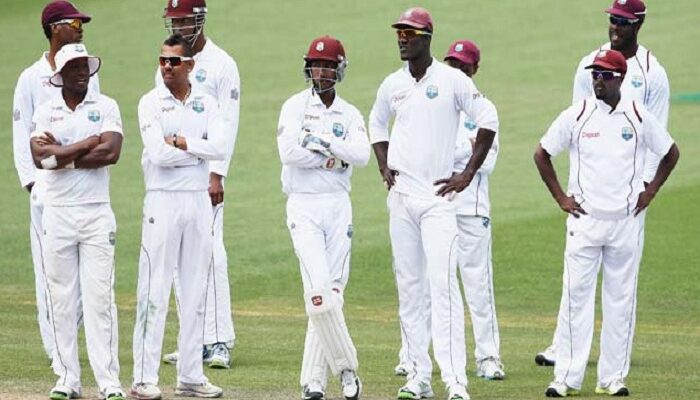The world of Test cricket demands more than just skill; it requires an almost stoic resilience, an unwavering belief in the face of adversity. For the West Indies cricket team, this belief is a constant, yet often fragile, companion on their journey back to prominence. Following a comprehensive defeat in the opening Test against India, captain Roston Chase finds himself, once again, articulating a familiar call: the imperative for change, starting now.
The Persistent Echoes of Defeat and the Whisper of Hope
A loss by an innings and 140 runs is not merely a scoreboard entry; it`s a stark reminder of the chasm that can exist between two teams. It leaves questions lingering in the minds of players and fans alike. Yet, in the immediate aftermath, amidst the technical analyses and tactical critiques, emerges the human element – the need for hope. Roston Chase, a figure often emblematic of West Indies` fighting spirit, voiced this very sentiment. “We’re really down right now,” he conceded, “but it has to change at some point. And the change can start from now, but it starts with the belief and the mindset of each and every player.”
This isn`t merely a cheerleader`s pep talk; it`s a foundational principle in high-performance sport. Without the conviction that success is attainable, even the most talented individuals falter. The challenge, however, lies in translating this internal belief into tangible performance on the field, particularly when the opposition is as formidable as India.
The Batting Conundrum: A Familiar Narrative
For decades, the West Indies have grappled with a recurring issue in Test cricket: the fragility of their batting order. While individual brilliance occasionally shines, the collective inability to build substantial, protracted innings has often proved their undoing. Chase pointed directly to this Achilles` heel: “batters’ inability to stay at the crease for long periods.”
In an era increasingly shaped by the instant gratification of T20 and One-Day Internationals, the patience required for Test match batting can seem almost archaic. It`s about more than just scoring runs; it`s about time at the wicket, wearing down bowlers, blunting the new ball, and meticulously constructing an innings block by block. This requires a specific “know-how” – an understanding of pitch conditions, bowler patterns, and the mental fortitude to resist temptations for hours on end.
“When you first start, no one really knows you. And then obviously, you play a couple of games, and then people see your weaknesses and try to exploit them. So it`s just for the players to just try to improve on those weaknesses from as early as possible.”
This astute observation from Chase highlights the sophisticated chess match that is Test cricket. Opposition analysts are relentless, identifying and targeting specific weaknesses. The onus, therefore, falls squarely on the individual batter to evolve, adapt, and refine their technique continually. It`s a never-ending cycle of challenge and response, where stagnation is simply not an option.
The Elusive Big Score: Confidence`s Catalyst
Chase carefully distinguished between a lack of confidence and the absence of pivotal “big scores.” “I don’t think the guys are lacking confidence,” he explained, “but it’s just to get that one score, to get that start, to then kick on from there. Once you get that good innings or that 100 or that big 50, that then gives you the confidence to know that I can absolutely do it.”
This speaks to a fundamental psychological loop in sport: success breeds confidence, which in turn fuels further success. A batsman might feel perfectly capable in practice, or even in a brisk cameo, but the sustained mental and physical effort to convert a promising start into a match-defining century under immense pressure is a different proposition entirely. The collective weight of expectation, amplified by previous failures, can make that “kick on” moment incredibly challenging.
The Captain`s Own Adaptability Test
Even for a seasoned professional like Chase, the transition between formats presents a unique challenge. While enjoying a strong run in white-ball cricket, he candidly admitted the significant adaptation required for the demands of Test matches. “Test cricket is a different format, so you have to bat for longer periods,” he stated, illustrating the shift from a “100 balls” mindset to an endurance test of “200 balls” or more.
His personal struggle—”Staying in the present is the biggest challenge for me right now”—offers a valuable insight. In Test cricket, a single lapse in concentration, dwelling on a previous delivery or anticipating the next, can lead to dismissal. The mental discipline to focus solely on the ball at hand, moment after moment, session after session, is a core attribute of successful Test batsmen. It`s a technical skill as much as it is a mental one, requiring continuous practice and an almost meditative state of mind.
A Legacy to Reclaim, A Future to Forge
The West Indies cricket story is one of glorious peaks and challenging troughs. As they face another critical juncture, the words of Roston Chase resonate with a mix of defiance and cautious optimism. The path to resurgence is not straightforward; it demands not just tactical adjustments but a profound psychological shift within each player.
Whether this renewed belief translates into a tangible turnaround in the upcoming Tests remains to be seen. But for a team aiming to reclaim its place among cricket`s elite, the journey must indeed begin somewhere. And as Chase asserts, with conviction and perhaps a touch of weary irony from past attempts, that change simply “can start from now.”









